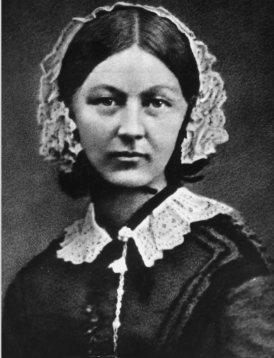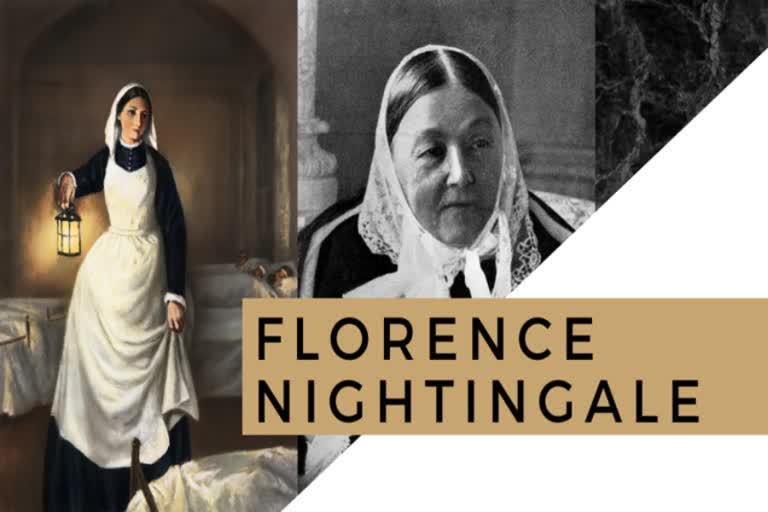Hyderabad: Nightingale was born on May 12, 1860, in Florence, Italy, to the British parents who named her after the city where they had traveled on an extended holiday before and after she was born. Her wealthy upbringing meant that she was expected to marry at a very young age and become a lady of stature, but Nightingale had other aspirations.
She was more interested in helping the ill & poor in the villages surrounding her family’s large estate. By the age of 16, she told her parents that nursing was her calling from God and rejected a marriage proposal and instead set her sights on nursing school. Determined to pursue her true calling despite her parents’ objections, in 1844, Nightingale enrolled as a nursing student at the Lutheran Hospital of Pastor Fliedner in Kaiserwerth, Germany.
Also Read: Remembering Richard Feynman, best known for the theory of quantum electrodynamics
Even though it was not a respected profession at the time, she told her parents that she wanted to become a nurse. Her parents did not approve of her decision and wanted her to get married and raise a family but she still wanted to be a nurse and refused marriage.

Eventually, her father allowed her to go to Germany for three months to study at Pastor Theodore Fliedner’s hospital and school for Lutheran Deaconesses. After finishing her program in Germany, Nightingale went to Paris for extra training with the Sisters of Mercy. By the time she was 33, Nightingale was already making a name for herself in the nursing community and returned to England in 1853 and became the superintendent and manager of a hospital for “gentlewomen” in London.
In the early 1850s, Nightingale returned to London, where she took a nursing job during a Middlesex hospital for ailing governesses. Her performance there so impressed she was promoted to the superintendent within just a year of being hired and the position proved challenging as Nightingale grappled with a cholera outbreak and unsanitary conditions conducive to the rapid spread of the disease.
Nightingale made it her mission to enhance hygiene practices, significantly lowering the death rate at the hospital within the process. The diligence took a toll on her health and she had just barely recovered when the most important challenge of her nursing career presented itself.
When the Crimean War began in 1854, the British were unprepared to deal with the number of sick and injured soldiers due to the lack of medical supplies, overcrowding, and unsanitary conditions caused many people to complain about. Newspapers began to report about the terrible state of medical care at that time. The Secretary of War, Sidney Herbert asked Nightingale to manage a group of nurses that might go treat the wounded soldiers.
Also Read: Features and specifications of Lava Z2 Max, launched in India
She agreed, and on November 4, 1854, Nightingale along with 38 nurses arrived at the British camp outside of Constantinople. When they got there, the doctors were unwelcoming because they did not want to work with female nurses. But however, as the number of patients increased, the doctors needed their help and the nurses brought supplies, nutritious food, cleanliness, and sanitation to the military hospital.
They also provided individual care and support but the Nightingale was known for carrying a lamp and checking on the soldiers in the dark so that they gave her the nickname “the Lady with the Lamp.” Within the six months, Nightingale and her team transformed the hospital and the mortality rate went down from 40 percent to 2 percent because of their work.
When Nightingale returned from the war, she continued to improve the conditions of hospitals and she presented her experiences and her data to Queen Victoria and Prince Albert in 1856. This data was the reason they formed a Royal Commission to improve the health of the British Army. Nightingale was so skilled with data and numbers that in 1858 and was also elected as the first woman member of the Royal Statistical Society and even being the first woman to be awarded the Order of Merit in 1907.
In addition to writing over 150 books, pamphlets & reports on health-related issues, she is also credited with creating one of the first versions of the pie chart. However, she is mostly known for making hospitals a cleaner and safer place to be.
Two years after her death, the International Committee of the Red Cross created the Florence Nightingale Medal that’s given to excellent nurses every two years. Also, International Nurses Day has been celebrated on her birthday since 1965. The year 2020 also marked the 200th birth anniversary of Florence Nightingale; her relevance today cannot be understated, given the COVID-19 pandemic.
The Lady with the Lamp, Florence Nightingale is still remembered on 110th death anniversary as the world faces the challenge of COVID-19 Pandemic.“The very first requirement in a hospital is that it should do the sick no harm.”- Florence Nightingale
Also Read: Asus postpones India product launches on May 12 due to COVID
(Inputs from IANS)



